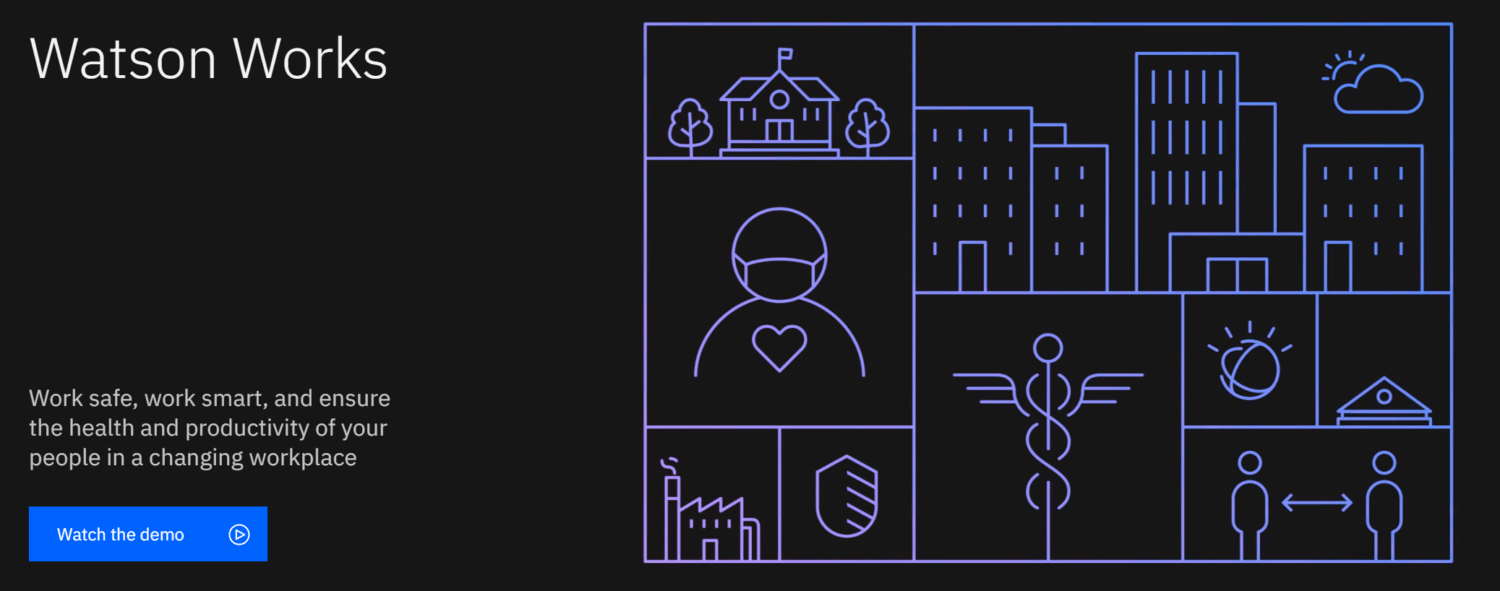
What You Should Know:
– Today, IBM launched Watson Works, a curated set of products that embeds Watson AI models and applications, to help companies navigate many aspects of the return-to-workplace challenge following lockdowns put in place to slow the spread of COVID-19.
– Watson Works provides data-driven insights to help employers make informed decisions on workplace re-entry, facilities management, space allocation and other COVID-related priorities.
IBM today unveiled Watson Works, a curated set of products that embeds Watson artificial intelligence (AI) models and applications to help companies navigate many aspects of the return-to-workplace challenge following lockdowns put in place to slow the spread of COVID-19.
Returning people to the workplace during the continuing global pandemic demands new approaches to promote the health, safety, and productivity of workers in a privacy-preserving way. Watson Works provides data-driven insights to help employers make informed decisions on workplace re-entry, facilities management, space allocation, and other COVID-related priorities.
Solutions to Address COVID-19 Related Challenges
Watson Works is designed to help companies with these elements of returning to the workplace as they respond to COVID-19 related challenges:
Manage facilities and optimize space allocation by using real-time data provided by the employer including WiFi, cameras, Bluetooth beacons, and mobile phones. This data, collected in a way that is designed to preserve employees’ privacy, enables managers to quickly reallocate spaces, designate no-go zones, arrange for cleaning and monitor crowding, social distancing, and mask-wearing.
Prioritize employee health by enabling employers to make evidence-based decisions about when to have employees return to the workplace and when certain offices or worksites should be closed. Facilitate the collection and analysis of real-time data from multiple sources, including local infection rates and trends, voluntarily shared employee symptoms and test results, employee and household health risks, and state and local regulations. Additionally, managers can be swiftly alerted to relevant updates.
Communicate with employees, vendors and other stakeholders. Through virtual agents and apps that use Watson’s Natural Language Processing capabilities, employees can get answers from employers to COVID-19 and HR questions, self-report symptoms, or learn whether or not they should report to work that day. Employees can also find out what time the employer thinks is the best time to arrive at the office, to avoid overcrowding.
Maximize the effectiveness of contact tracing by assisting organizations with support for care agents and contact tracers. When employees voluntarily notify their employers of a positive test result and give consent, contact tracers can conduct interviews and use information from multiple sources to help identify individuals who should be notified of potential exposure, document all case-related information in a secured, privacy-preserving system, and trigger employer designed case management workflows to support employees while they recover.
“We’ve designed Watson Works to help businesses navigate the workplace with the ongoing COVID-19 health crisis as effectively as possible,” said Bob Lord, Senior Vice President, Cognitive Applications, Blockchain and Ecosystems, IBM. “Applying AI models and applications is especially useful in this context, where there are so many different sources of information businesses must consider, and every aspect of the situation is in flux.”
